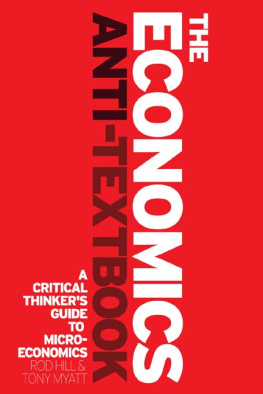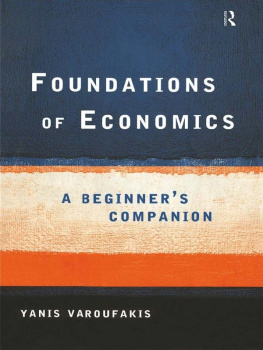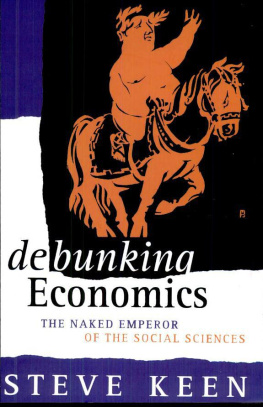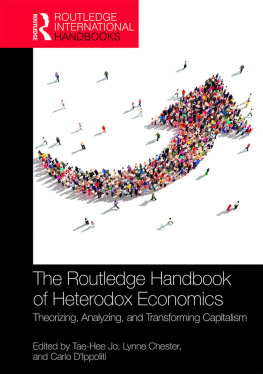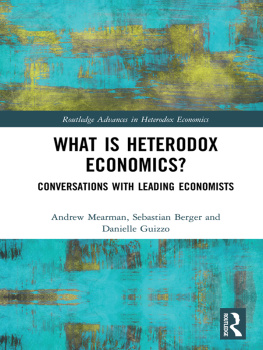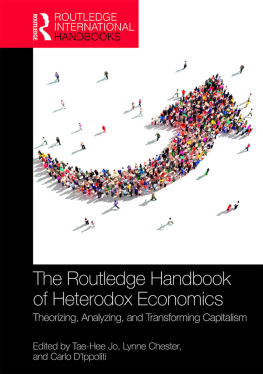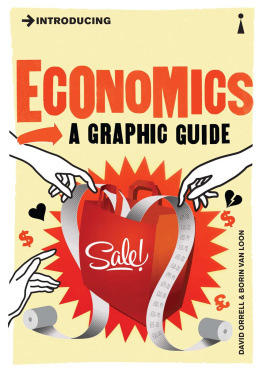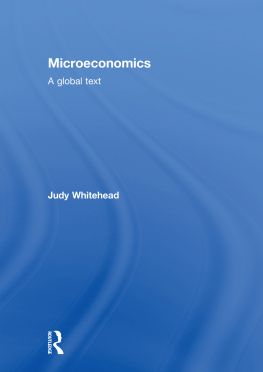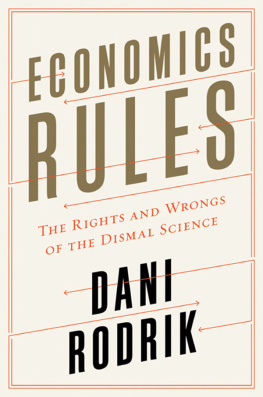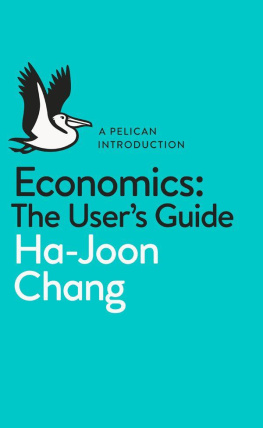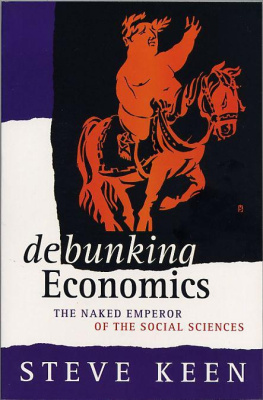About the authors
Rod Hill grew up in Ontario, was educated at the University of Toronto, the University of Stockholm and the University of Western Ontario, where he obtained a PhD in economics. He has taught at the University of Windsor, the University of Regina and the University of New Brunswick, where he has been a professor of economics since 2003. His research interests have included international trade policy, taxation and the underground economy, and (as a result of growing dissatisfaction) the content of the introductory textbooks. He is a research associate with the Canadian Centre for Policy Alternatives and a member of Economists for Peace and Security and the Progressive Economics Forum.
Tony Myatt received his PhD from McMaster University with distinction in theory. He has taught at McMaster University, the University of Western Ontario, the University of Toronto and the University of New Brunswick, where he has been professor of economics since 1992. His research interests have included the supply-side effects of interest rates, labour market discrimination, unemployment rate disparities, and the methods and content of economic education. He has developed several different introductory courses as vehicles for teaching principles of economics, including Economics of everyday life, Economics in the real world and Economics through film. Professor Myatt was the recipient of UNBs Arts Faculty Award for Excellence in Teaching in 2008.

The Economics Anti-textbook: A critical thinkers guide to microeconomics was first published in 2010
Published by Zed Books Ltd, 7 Cynthia Street, London N 1 9 JF , UK and Room 400, 175 Fifth Avenue, New York, NY 10010, USA
Copyright Rod Hill and Tony Myatt 2010
The rights of Rod Hill and Tony Myatt to be identified as the authors of this work have been asserted by them in accordance with the Copyright, Designs and Patents Act, 1988
Designed and set by Ewan Smith, London
Index
Cover designed by David Bradshaw
All rights reserved. No part of this publication may be reproduced, stored in a retrieval system or transmitted in any form or by any means, electronic, mechanical, photocopying or otherwise, without the prior permission of Zed Books Ltd.
A catalogue record for this book is available from the British Library
Library of Congress Cataloging in Publication Data available
eISBN 9781848138292
| Tables and figures |
| Tables |
Percentage of children in households with less than half of median
household income, circa 2000 |
| Figures |
Acknowledgements
We would like to thank Walid Hejazi, Michael Krashinsky and Jack Parkinson of the University of Toronto, participants in a seminar at the University of New Brunswick, and a variety of anonymous referees who provided helpful comments on the initial outline of the book. Many colleagues also helped in selecting a title: Abdella Abdou (Brandon University), Hafiz Akhand (University of Regina), Marilyn Gerriets (St Francis Xavier University), John Janmaat (University of British Columbia, Okanagan), Harvey King (University of Regina), Rob Moir (University of New Brunswick), Saeed Moshiri (University of Saskatchewan), Michael Rushton (University of Indiana, Bloomington), Jim Sentance (University of Prince Edward Island), Calin Valsin (Bishops University) and Fattaneh Zehtab-Jadid (Brandon University).
Special thanks to: Michael Bradfield of Dalhousie University, who commented on initial drafts of some chapters; our two editors at Zed Books, Ellen Hallsworth and Ken Barlow, for their guidance and their patience with our missed deadlines; and to two anonymous referees who read the first draft.
None of the above should in any way be held responsible for the views expressed here.
Finally, thanks to our respective wives Virginia and Muriel for putting up with us through the writing of this book.
We dedicate this book to our respective children, Rose and Thomas Myatt, and Joan-Maki Motapanyane, and grandchildren, Maia and Terence Motapanyane, and to all inquisitive economics students who want to think for themselves and not just believe what theyre told.
Introduction: our goals, audience and principal themes
I am so displeased at the way undergraduate economics is taught. Undergraduate economics is a joke they teach this stuff that you know is not true Herb Gintis, Emeritus Professor of Economics, University of Massachusetts (from )
It is true that we cannot, in the time available, teach everything that we would like. But why do we pick out for treatment just that selection of topics that is least likely to raise any questions of fundamental importance?
In brief
The typical introductory economics textbook teaches that economics is a value free science; that economists have an agreed-upon methodology; and they know which models are best to apply to any given problem. They give the impression that markets generally are sufficiently competitive that (for the most part) they lead to efficient outcomes; that minimum wages and unions are harmful to workers themselves; and that government regulation is either ineffective or harmful.
This Anti-Textbook points out that all this is a myth. Value judgements pervade economics and economic textbooks. These value judgements reflect a social and political philosophy and can be called an ideology or world-view. It is one that textbook writers are implicitly attempting to persuade the reader to accept. The Anti-Textbook makes this ideology, and the value-judgements behind it, explicit. The point is not so much to claim that this ideology is wrong, but simply to point out that it exists, and that there are always alternative views that one ought to consider.
Our aim is not to debunk mainstream (neoclassical) economics just the textbook presentation of it. Partly, this is because the neoclassical paradigm is remarkably malleable. It is capable of transforming itself, of shedding many an unappealing feature. Though we are sympathetic to alternative paradigms and to heterodox views (one of us thinks of himself as a post-Keynesian and the other as a European-style social democrat), the Anti-Textbook is not a presentation of alternative paradigms.
This book is not anti economics, or even anti mainstream economics. It is anti mainstream textbook economics. This is a much easier target to attack. The evidence is palpable. The books exist. You can see them, touch them and read them yourself. And should you do so, you would find that the mainstream textbooks are remarkably uniform and reflect a narrow range of world-views indeed, a much narrower range of world-views than those held even by mainstream economists.
Of course, there are a few non-traditional textbooks we name several in our suggestions for further reading at the end of this chapter but they comprise a very small share of the market in the English-speaking world. Unfortunately, the vast majority of first-year economics students are subjected to the standard mainstream textbook. It is for them, and their suffering professors, as well as the intelligent layperson, that we have written this book.
We hope that our book, by citing the views of many prominent economists from a variety of schools of thought, both mainstream and heterodox, will help students to understand that economics is much more diverse (and interesting!) than what they see in their mainstream introductory text.

